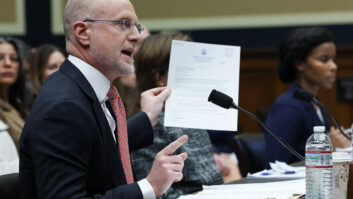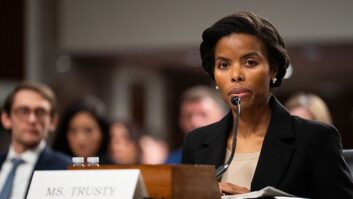The Federal Communications Commission has taken the unusual step of cancelling two proposed forfeitures — but not without admonishing the licensees for their violations.
In both cases, a Notice of Apparent Liability was issued by the Audio Division of the Media Bureau for the same violation: failing to file a license renewal application in a timely manner.
In the first case, the Bay City Public Schools district in Bay City, Mich., failed to file an application to renew the license of station WCHW(FM) on time. The same error was made by Billy R. Autry, licensee of two Mississippi stations — WKRA(AM) and WKRA(FM) in Holly Springs, Miss.
[Read: Four Stations Receive Forfeitures for Same Alleged Violation: Late Filings]
The FCC Rules are clear when it comes to submitting license renewal applications: the request must be submitted on the first calendar day four months prior to the expiration of the license.
In Bay City’s case, that meant that the application should have been filed by June 1, 2020, to prepare for the station’s Oct. 1, 2020, license expiration date. That application was not filed until the day before it expired: Sept. 29, 2020.
For Autry, the renewal applications for the two stations should have been filed by Feb. 3, 2020, in preparation for a June 1, 2020 license expiration date. Those applications were not filed until May 20, 2020.
In both cases, the bureau proposed a forfeiture of $3,000 per station. Both licensees were given 30 days to pay the full amount or file a written statement as to why it should be reduced or cancelled.
For the Bay City Public Schools district, it blamed the coronavirus pandemic.
The school wrote to explain that its employees did not have access to the station for four months in early 2020 because of restrictions associated with the COVID-19 pandemic. The district also had the impression that its filing deadline was July 1, 2020, and believed that it had already filed its renewal application on June 29.
It turns out that the licensee had saved the application in the commission’s Licensing and Management System database but it had not formally turned it in. Mistakes that result from unfamiliarity with the FCC’s requirements are still willful violations, the bureau said. “[C]onfusion or difficulties with the commission’s electronic filing system are not grounds for reduction or cancellation of a forfeiture,” the bureau said.
But the disruption caused by the coronavirus pandemic held sway; the bureau moved to cancel the forfeiture and granted the renewal application. But it admonished the licensee for failing to file on time.
In Autry’s case, the bureau proposed a $6,000 fine for failing to renew the two stations’ licenses and gave him 30 days to pay the full amount or explain why the forfeiture should be reduced or cancelled.
Autry responded by saying that he was not aware of the filing deadline because a notification was sent to a former employee of the stations. He also asked the bureau to cancel the proposed forfeiture based on his inability to pay and included copies of federal tax returns for 2017, 2018 and 2019 in support of this request.
Being unaware of a deadline is not enough to excuse the violation, the bureau said. Violations resulting from error or unfamiliarity are still willful violations.
But the bureau will consider a reduction or cancellation of a fine if the licensee can demonstrate a legitimate financial hardship through three recent federal tax returns. After reviewing those, the bureau found that payment of the proposed forfeiture would create such a hardship. As a result, the bureau cancelled the proposed forfeiture and granted the renewal applications — but not before admonishing Autry for his violations.






